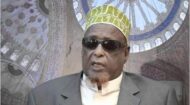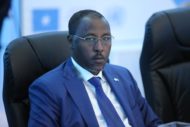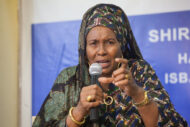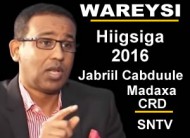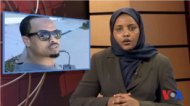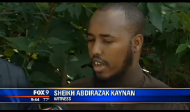Cairo (CNN) — Opposition activists geared up for a new round of mass demonstrations Friday, unconvinced by Egyptian President Mohamed Morsy’s defense of his recent controversial actions and unnerved by threats of punishment.
In remarks Thursday night — his latest since the bloodiest stretch in two weeks of political unrest — Morsy refused to back off the controversial edict he issued or his nation’s upcoming constitutional referendum, saying he respects peaceful opposition to his decisions but won’t stand for violence.
Addressing “those who oppose me” and his backers, the president condemned those involved in the clashes — referring specifically to those with weapons and who are backed by members of the “corrupt … ex-regime” — and promised they’d be held accountable.
“(They) will not escape punishment,” the president said in a televised speech.
Yet Morsy’s words not only failed to mollify many protesters on the streets, it further enraged them. Activists camped in Cairo’s Tahrir Square chanted “Leave! Leave! Leave!” as the president talked.
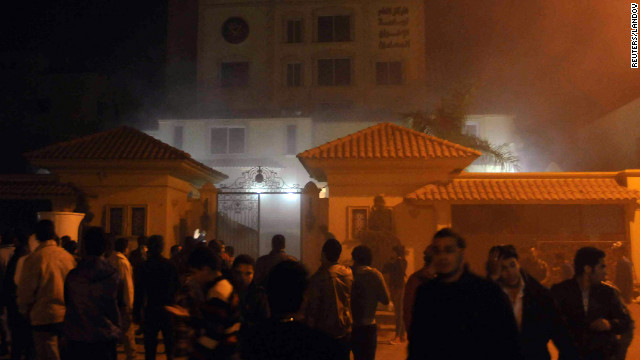

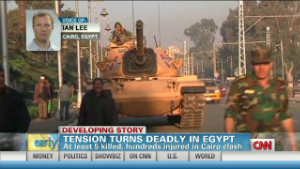

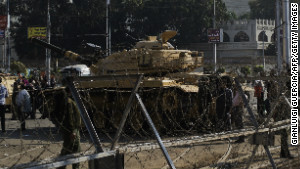

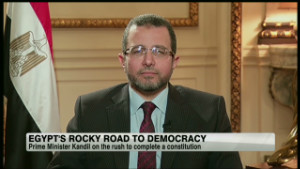

And minutes after the speech ended, the Muslim Brotherhood headquarters in Cairo was “ablaze,” state TV reported, citing witnesses. The Islamist group said on its website and Twitter that the building had come under “a terrorist attack,” with hundreds surrounding it — though by 1 a.m. Friday, there was no sign of a fire or significant damage.
Once the day dawns Friday, more protests are expected. The National Salvation Front, an umbrella group of opposition organizations, is calling for large-scale demonstrations against a government it says has “lost legitimacy,” said the group, as reported by the semi-official al-Ahram newspaper.
Such a call for action — and their sustained presence in Tahrir Square — suggests activists are undaunted by threats from Morsy and members of the Muslim Brotherhood, the Islamist group tied to Morsy that was banned under longtime President Hosni Mubarak but is now Egypt’s dominant political force.
On Twitter, the Brotherhood has said it will hold opposition figures “fully responsible for escalation of violence & inciting their supporters.”
Adel Saeed, a spokesman for Egypt’s newly appointed general prosecutor, said Friday morning that Hamdeen Sabahi, Mohamed ElBaradei and Amr Moussa are being investigated for allegedly “conspiring to topple” the government. All three are well-known internationally — with ElBaradei being a Nobel Peace Prize laureate and Moussa a one-time head of the Arab League — and are now being probed for their role in the opposition against Morsy, who defeated all three in this year’s presidential election.
Those taking part in the protests around the North African nation say the scenes are similar to those of the 2011 uprising that led to Mubarak’s ouster. This time, they say, dissent is being vigorously stamped out by Morsy’s backers in government and on the street.
Specifically, they spoke of thugs with knives and rocks chasing activists, presidential backers belittling opponents and pressure from various quarters to go home and be quiet.
“It’s exactly the same battle,” said Hasan Amin, a CNN iReporter.
A November 22 edict by Morsy, in which he made his decisions immune to judicial oversight until a new constitution is voted upon, set off the latest wave of political unrest. And it’s been growing — and growing more violent — in recent days.
Ahead of the president’s speech Thursday, opposition leaders were specific in saying what would mollify them: Morsy must roll back his edict granting himself expanded presidential powers and must postpone the scheduled December 15 referendum on a proposed constitution, which they say doesn’t adequately represent or protect all Egyptians.
Neither happened.
iReport: Bloody clashes around Egyptian Presidential palace
That fact, itself, isn’t surprising. Morsy previously defended the edict as necessary to defend the revolution and his administration has insisted the proposed constitution was drafted legally and the referendum will go on as planned. If people vote it down, the president said Thursday night that he’d form a new assembly to draft another constitution.
Yet opposition activists haven’t shown any indication that they trust Morsy on that or other counts. They accuse him of consolidating power for himself and the Muslim Brotherhood, in part by having an Islamist-dominated group push through the draft constitution.
“This is not what we asked for,” one protester said. “It’s a complete dictatorship.”
This internal strife has helped transform the area around the presidential palace in Cairo into a war zone. Streets littered with rubble and burned cars were defined by barbed-wire barricades, patrolling soldiers and parked tanks and armored personnel carriers.
Read more: The factors driving Egypt’s unrest
Beyond the popular unrest, Morsy’s inner circle was shaken when Rafik Habib, the deputy head of the Freedom and Justice Party, resigned Thursday, party spokesman Ahmed Sobe said. Habib did not give a reason.
His resignation brings to five the number of presidential advisers who have left in the last two days. It is the first, however, from the Freedom and Justice Party.
Read more: Egyptian media strikes against President Morsy
Egyptian judges and media organizations also have staged strikes to show their displeasure with the situation. And 11 organizations representing lawyers, journalists, writers, actors, musicians and tour guides said Morsy and the Muslim Brotherhood were behind the violence, al-Ahram reported.
The group said it would call for Morsy’s ouster if the administration failed to protect protesters and “fulfill the aspirations of the January 25 revolution,” the newspaper said.
Vice President Mahmoud Mekki asked critics Wednesday to submit their proposals for improving the constitution, and Morsy invited political opponents to a meeting Saturday at the president palace.
But Morsy — whom U.S. President Barack Obama told by phone shortly after his speech that any “dialogue should occur without preconditions,” according to the White House — hasn’t said he’s open to altering the constitution or the planned referendum date. And some Muslim Brotherhood officials have been more strident, especially in their views of the opposition.
Muslim Brotherhood Secretary-General Mahmoud Hussein said Thusday that protesters weren’t interested in democracy. He accused them of using “crude and contemptible ways of expression, rather than (putting) their points across in a civilized manner.”
While insisting he respects Egyptians’ right to peaceful protest, Morsy spent a significant portion of his Thursday night speech blasting those he claims are behind the recent violence. He accused unspecified foreign and domestic sources of funding and fomenting the unrest, making specific reference to “corrupt” opposing forces tied to Mubarak’s government.
“The deposed Mubarak regime will not be brought back to life under any circumstances,” Morsy said, tweeted the Muslim Brotherhood.
If you’re in Egypt, please send us your photos, videos, share your story but stay safe

 All Posts
All Posts

